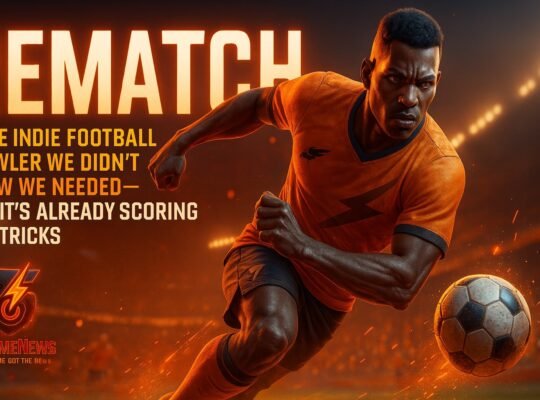One debate continues to spark heated threads on Reddit and warzones in comment sections: how much should devs actually listen to their communities? Some studios treat fan feedback like a plague, while others survive—or thrive—by listening to their players like they’re part of the dev team.
The Lone Wolf Approach: Vision First, Players Later
Some of gaming’s most legendary titles were made with minimal community input. Nintendo, for example, has long prided itself on charting its own course. Shigeru Miyamoto famously avoided focus groups, believing that if a game was fun for him, it would be fun for everyone. And let’s be real—it worked. Super Mario, Zelda, Pikmin—these franchises are iconic, and they’re Miyamoto’s brainchildren first, community projects second.
But this “trust me, I’m a genius” strategy doesn’t always age well. While bold creative vision can birth classics, it can also miss the mark spectacularly when devs don’t adapt to changing tastes or technical expectations. Just ask anyone who pre-ordered Mighty No. 9 thinking it would be the second coming of Mega Man.
The Cautionary Tales: Games That Ignored Their Fans
Plenty of games have collapsed under the weight of ignoring their community—or worse, actively alienating them. Mass Effect 3 is still infamous for its ending, which essentially told players that their hundreds of hours of decisions meant squat. BioWare had to scramble out an extended cut just to stop the bleeding.
Then there’s Battlefront II (2017), which became the poster child for what happens when you let monetization trump player experience. EA’s original loot box-heavy system was so reviled, it sparked global debates on gambling in games and prompted government regulations. Only after a massive community backlash did EA overhaul the system—but the damage to reputation was done.
Redemption Arcs: When Listening Pays Off
On the flip side, some of gaming’s biggest redemption stories were written by devs who listened—really listened.
Take No Man’s Sky. At launch, it was a barren shell of the game Sean Murray had promised. The backlash was nuclear. But Hello Games didn’t go into hiding. They listened, worked quietly, and rolled out update after update, transforming the game into a deep, rich universe with multiplayer, base-building, and exploration worthy of its hype. Now, No Man’s Sky isn’t just good—it’s one of the most celebrated comebacks in gaming history.
Or look at Final Fantasy XIV. After a disastrous launch in 2010, Square Enix effectively blew the whole thing up and rebuilt it from scratch. The result? A Realm Reborn—a game that turned an industry joke into one of the most beloved MMOs of all time. How? By constantly engaging with their players, hosting fan fests, and even baking player feedback into patch notes.
The Rise of the Community-Centric Model
Games like Warframe, Fortnite, and Genshin Impact have set a new standard by building content and balancing decisions around their community’s wants. Regular dev streams, community surveys, test servers, and direct engagement on social media aren’t just PR moves—they’re essential pillars of how these games grow.
Warframe, for example, went from obscure space ninja sim to massive success largely through its open communication model. Players feel like co-creators, not just customers. Similarly, Fortnite’s ability to stay fresh with frequent updates and community-driven events has helped it retain its pop culture status far longer than anyone expected.
The Double-Edged Sword of Feedback
Of course, too much community input can be a problem. Open forums can turn into echo chambers or breeding grounds for toxicity. Developers can fall into the trap of chasing every loud opinion instead of sticking to a cohesive vision. We’ve seen games like Destiny 2 and Overwatch struggle with this, swinging balance changes back and forth in ways that feel more reactionary than strategic.
The trick is balance. Smart devs filter feedback, look for patterns, and weigh input against their design goals. The best community management isn’t about saying “yes” to everything—it’s about showing players that their voices are heard and valued, even when the answer is “not yet” or “not possible.”
Final Thoughts: Build With Us, Not Just For Us
The days of the isolated game dev genius are fading. Today’s players want to be part of the process. They want patch notes, roadmaps, transparency, and maybe even the occasional meme-filled dev stream. Ignoring your community doesn’t just risk failure—it risks irrelevance.
Listening to your players doesn’t mean selling out your vision. It means making sure your vision has a real shot at resonating with the people who matter most: the gamers. And when that balance is struck? That’s when the magic happens.
So here’s a challenge to every dev out there: Don’t just build for us. Build with us.
What’s your take—should devs listen more, or is too much feedback a trap? Drop your thoughts below and let’s get into it.











